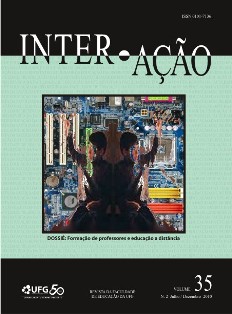THE CONSTIT UTION OF THE SUBJECT IN CONTEMPORANEITY
DOI:
https://doi.org/10.5216/ia.v35i2.13126Abstract
The aim of this essay is to reflect on the development of subjectivity using modernity as a reference. To do so, literature is used as well as the sociological and psychological analysis of certain Frankfurt School authors: TW Adorno, M. Horkheimer,Herbert Marcuse and Walter Benjamin. The essay is divided into three parts. In the first, the term subject is thought of either as epistemic – the subject of knowledge – or as empirical – that which is studied by psychology and psychoanalysis. Using Benjamin as a reference, the second part discusses the notion of subjectivity in Modernity, based on the distinction between subject living and experience. This part also emphasizes the object studied by Psychoanalysis, and presents the thesis that the individual, as conceived by classical formation, is no longer possible. In the last part, also by means of literature, the thesis of de-individualization is presented and so the ideological role of education and psychology on claiming an inexistent subjectivity, strengthening its simulacrum, which is put in the place of that which could already exist given the objective conditions reached.Downloads
Downloads
Published
How to Cite
Issue
Section
License
Inter-Ação uses the Creative Commons Attribution 4.0 License for Open Access Journals (Open Archives Initiative - OAI) as the basis for the transfer of rights. Open access means making documents available on the Internet free of charge, so that users can read, download, copy, distribute, print, search, or link to the full text of documents, process them for indexing, use them as input data for software programs, or use them for any other lawful purpose, without financial, legal, or technical barriers.
Authors publishing in this journal agree to the following conditions:
1) Authors retain copyright and grant the journal the right of first publication, with the work simultaneously licensed under the Creative Commons Attribution License, which permits redistribution of the work with attribution and first publication in this journal.
2) Authors are permitted to enter into additional, separate agreements for non-exclusive distribution of the version of the work published in this journal (e.g., for publication in an institutional repository or as a book chapter), with attribution and first publication in this journal.
3) Authors are permitted and encouraged to publish and distribute their work online (e.g. in institutional repositories or on their home page) at any time before or during the editorial process, as this may generate productive changes as well as increase the impact and citation of the published work.















